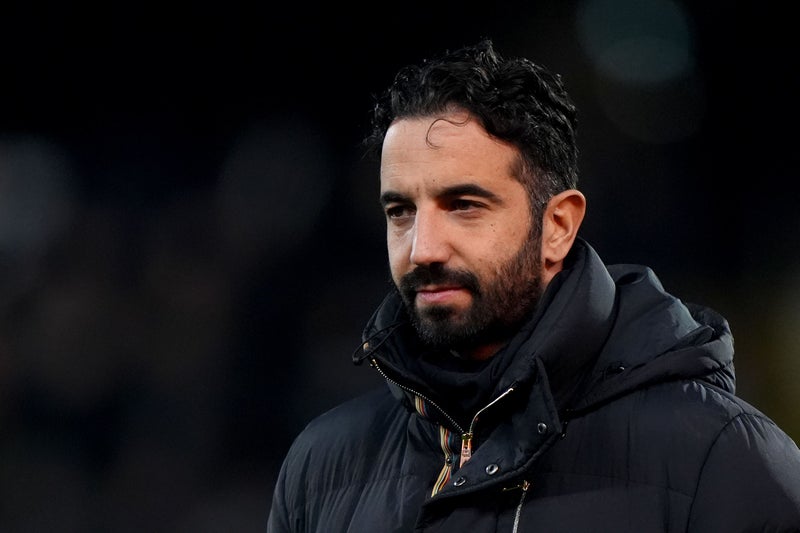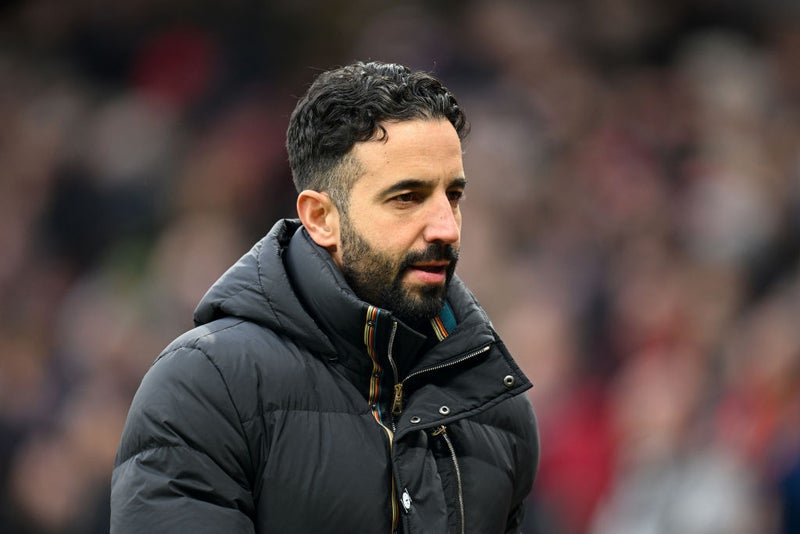The top clubs largely resisted the sort of excess spending that has characterised past windows, while middle-class sides like Aston Villa are closing the gap. As the window closed on Monday evening, there were only a few clubs - maybe Manchester City and Aston Villa - who were in any way satisfied with their business. One of the major issues with January signings was instead illustrated by two of England’s biggest clubs. Both Arsenal and Manchester United wanted to bring in forwards, and were still discussing options in the final 24 hours. A huge problem was that the extra costs required in this window would almost certainly have affected better business later.
![[Ollie Watkins remained at Aston Villa despite interest from Arsenal]](https://static.independent.co.uk/2025/02/03/04/2e998cd170b7021d60572ca79f778eeeY29udGVudHNlYXJjaGFwaSwxNzM4NjIzOTk1-2.78591698.jpg)
In other words, they chose long-term ideals for the summer over short-term pragmatism now. Both clubs know from recent experience how ruinous the latter can be. United’s severe PSR difficulties were shaped by the extreme over-expenditure of the Erik ten Hag era, with Ruben Amorim repeatedly speaking of “trying everything to improve the team without doing the mistakes of the past”. That might previously have entailed a rush to just get in a striker now, despite a growing belief that United will secure Sporting’s Viktor Gyokeres in the summer. One would have stopped the other.
![[Mathys Tel unexpectedly became a key figure in January]](https://static.independent.co.uk/2025/02/03/23/221738373e23530dbd7f59014558f6bdY29udGVudHNlYXJjaGFwaSwxNzM4NzA0MTQ1-2.73802919.jpg)
Arsenal have been much smarter over the past few years but that has taken them to the point where Mikel Arteta specifically knows what his team is missing, and has a clear vision for what he wants: a midfielder, a wide forward, a physical striker. He ultimately didn’t want to green-light a signing he would soon regret. There had actually been a late attempt to see if Athletic’s Nico Williams was worth pursuing now rather than the summer, but the same mid-season issues arose. No deal was possible.
![[Marcus Rashford settled for a loan to Aston Villa rather than a permanent move from Manchester United]](https://static.independent.co.uk/2025/02/02/14/ea4fa09ab2e765065f6010a14f716b8bY29udGVudHNlYXJjaGFwaSwxNzM4NTkxMTY4-2.78526989.jpg)
Those close to both hierarchies would argue this is exactly the kind of bigger-picture measured leadership that has too often been missing. It does sound rather rational, even if it won’t necessarily feel so calming in the stressful moments when both teams suffer from their shortcomings. United won’t be as “relaxed” about not getting a forward when they’re going through another half without a shot on target. Arsenal may find the absence of an extra attacker becomes the difference in the Premier League or Champions League. At least this season.
![[Unai Emery’s Aston Villa were busy on deadline day, bringing in Marco Asensio (pictured) and Axel Disasi]](https://static.independent.co.uk/2025/02/03/22/25/GettyImages-2136581368.jpeg)
As much as both of these big clubs represent different extremes, of course, they also reflect a general theme of the window. The story was almost who wasn’t bought rather than who was, and clubs not spending. It is maybe fitting that Marcus Rashford, for so long the central figure of the window, only went out on loan. Even Manchester City, whose £180m on five signings was responsible for almost half of the Premier League’s total £365m, only spent so much because they didn’t buy in recent windows. Theirs was a belated refresh, as illustrated by the striking youth of their signings.
That does touch on two interconnected reasons as to why this window was so restrained. One is how recruitment policies themselves have become such an arms race, which is now evident in the fame of many sporting directors. Clubs have to plan much better, especially in a modern game shaped by youthful intensity and pressing. Buyers have to go earlier and younger. That is partly how a 19-year-old in Mathys Tel briefly formed the main storyline of the window. Arsenal ultimately felt there wasn’t enough evidence he could make immediate impact in their system. Ange Postecoglou is understood to have been influential in persuading Tel to join Tottenham Hotspur.
Along the same lines, the plans of both Leipzig and Sporting tend to be so forward-thinking that they were never going to let their star strikers Gyokeres and Benjamin Sesko go this window. Sesko’s centrality to the German club's Champions League ambitions was potentially worth an extra £50m to Leipzig before ultimately finishing a disappointing 32nd in the league phase. Too much is wrapped up in modern prize money, with Leipzig now desperate to return to Europe’s top table while sitting fourth in the Bundesliga in what promises to be a tantalising race involving as many as 10 teams in the battle for third and fourth behind Bayern and Leverkusen. This of course feeds into the second reason: financial controls.
It is certainly true that many Premier League clubs are now “petrified” of PSR sanctions. The regulations have had real effect in that sense. While the most loudly voiced argument from this has long been that it “stifles” competition and prevents the Premier League securing the best, there’s now considerable evidence that the opposite is true. For one, no competition other than the Saudi Pro League can financially compete. Look at the paltry outlay elsewhere. Barcelona were never in with a chance of fulfilling Rashford's dream. Secondly, as much as PSR has “petrified” clubs, it has fortified and emboldened others. That is particularly true of the middle classes.
The Premier League now has so much money running through it that the wealthiest clubs cannot reach the kind of fees in January that are sufficient to strong-arm those underneath. The asking prices are too high. It is far easier to shop abroad. That is proved by the fact that there were only six major deals between Premier League clubs. Five of those were loans, too, reflecting how clubs are naturally more interested in short-term fixes in January.





























